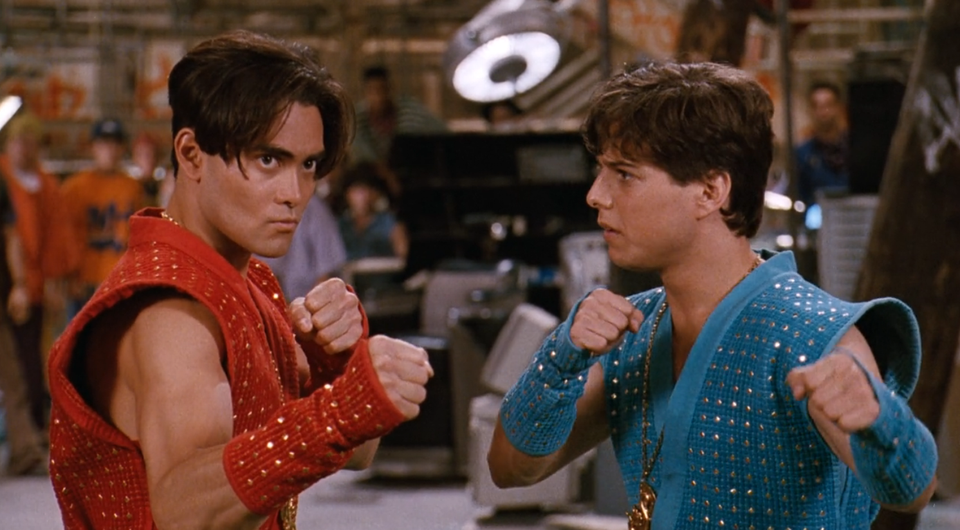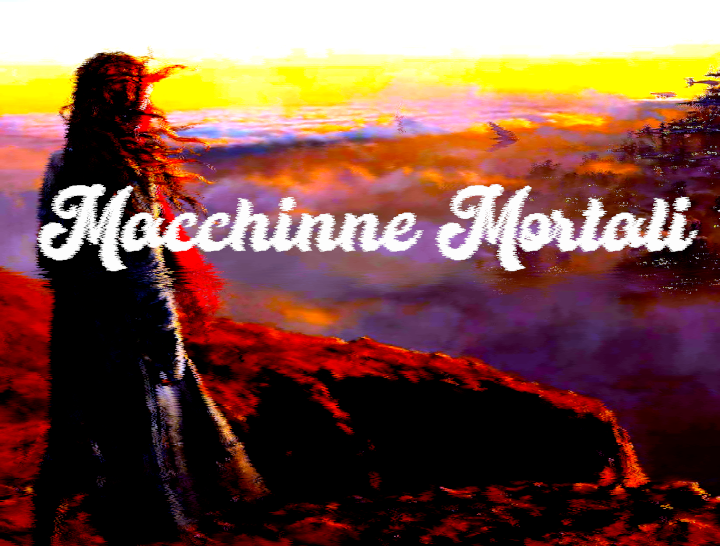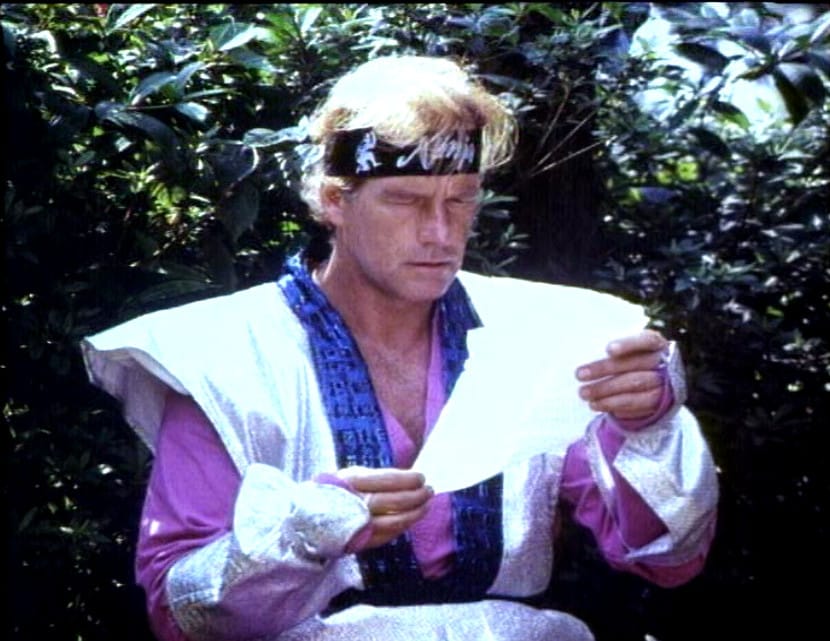Driving & Parking - STAR CRASH (1978)
Scan it with your computer waves

There's no real spoilers, because this deserves to be watched.
In 1977, Star Wars made space adventure mainstream again. Well shot, well acted, capably and talently executed throughout. Sci-fi, but in particular space adventure, had a quality for awkwardness, an unintentional Kirk vs Gorn goofiness. For decades, it had a haunted prescence of Plan 9 about it. Star Wars dispelled that. It's too well done to be made fun of in that way.
In a lot of ways, it's really too cagey for it as well. Like they were aware of the hazards of the genre and trying to avoid it. Like one of those youtubers who defensively and repeatedly says "the comments will say this is wrong but..." It's serious while pretending to be fun and light hearted. It overcomes the biggest flaws in the genre - to look, feel and present itself cheaply or unbelievably. It is a Toyota Corolla, completely capable in all regards.
Thankfully, a year later, Star Crash is released and does away with all of that.
The conventional wisdom is that its a ripoff of Star Wars. Its not. In a way, it can't be. Star Crash is too opposing spiritually and in form. It comes from a different place, a different emotional structure. Star Crash operates, gleefully, without thinking about it, in another area entirely.
If Star Wars is the orthodox, with its own grandeur but monolithic, the Star Crash is a bright fringe sect. It is ranterism, delirious, wide eyed with millenniarian ideas. It is deep in its own rapture. Space is its multicoloured, glittering plaything, half toy, half spirit.
Its bright and garish, fond of backlit props and flashing instrument panels. It delights in analogue fx effects. Stella Star (Caroline Munro, whose makeup is exceptional) traverses a snowy plateau in three inch heels. Akton (Marjoe Gortner) laughs and smiles, with the aura of a fae thats won a prize vacation and is having the time of its life.

The whole thing drips with a particular flavour of space opera, sticky and neon coloured. The sort of essence they might make a slurpee out of.
There's some b-movie hazards this manages to steer clear of. Sci-fi, like fantasy, seems one of the hardest and most expensive genres to make as a film. There's a lot of reasons, but perhaps the main one is that in both, the environment, the design, the sets, all have to be produced from scratch. For space based movies, this is doubly hard, without even a fantasy adventure forest to rely on as a set.
A lot of sci-fi b-movies are hampered by this. They end up stuck in a few places, without much to do, sagging the movie down with a lot of cheap dialogue. Without narrative expansion afforded by extra sets. Star Crash avoids this. It uses real world settings, but never for long. The director (Luigi Cozzi) deserves credit for keeping the plot moving from place to place. It thoroughly disregards any call for restraint, while acting with absolute sincerity. It can't make epic serious sci-fi, and doesn't even try.
The antagonist, Count Zarth Arn (Joe Spinell), manically laughs throughout, every overdelivered operatic line a little gem. He wears a giant glittery red cape which billows out behind him as he walks.
But don't be decieved, for all his gaity, he has bad intentions. Only two smugglers - Stella Star and Akton, plus a robot from Texas and the emperors son (David Hasselhoff) can stop him. They are given copius amounts of eyeliner, and slowly assemble to find the count.
No-one female really wears many clothes. Its only mildly gratutious, no worse than Dianna Troi or the soft focus female characters on the original Star Trek. Its part of the chaotic energy, and has the grace to not follow it up with weird ass out dutch angles. It doesnt act like Ghost In The Shell. Somehow, this works, lends it a hedonistic air. Its not sensual, its not that well done, but nor is it asceticism of the original Star Wars.
Its Akton that makes the thing work. He's too smily and frivilous to be any sort of rogue. Its an almost infectious enthusiasm. Stella is more reserved, perhaps a touch defeatist, but only by the light of the bright sun of her companion. Prince Simon, Hasselhoff, tries to be serious and earnest, but he's undone by his boyish looks and heavy eyeliner.
Akton gets a lightsaber and swings it round wildly with glee and enthusiasm, like a ferret that's been given a new synthesiser. Akton has magical powers, which he uses mostly a toy. It gives the impression of an easy, friendly alignment with the universe. Perhaps this is how all magical powers are meant to be used.
You can't help but think of when Star Wars does some of these things. When it tries to be sexy, it is embarrassing - no reflection on Carrie Fisher, its how its done and written. It thinks effeminate sounding robots are funny. At other times its fine, but when it tries to engage in the less tangible, more human sentiments, it comes across like a corporate social media account.
It tries for something which Star Crash achieves effortlessly. If Star Wars is linear, a line of progress through distinct points that builds a movie, then Star Crash is rhizomatic. It pulls from all sources, including its own absurd dialogue, clunky acting and local theatre flamboyance costume design.
If there's a big flaw, its the sound. Musically its totally appropriate, tending to the operatic and bombastic, but the mixing is awful. Everything is scratchy sounding, or completely flat, mixed with no depth to it. A common enough flaw on b-movies. It deserves redoing, but the source material might be too bad to actually do it.
Its fun is through its osmosis, through taking up from the terrain around it. Pyun films in the 80s do this just as well. Producing a serious, grounded science fiction movie is hard, and its expensive. What breaks so many others in the genre is they try to do it anyway, and the result doesn't work.
Perhaps not such a relevant lesson now. Yet the duality of the two forms of science fiction is still out there. If Sci-fi has an internal schism, elements of doctine that are under dispute, it is between the serious and the operatic.
The serious ones can be fantastic. Star Trek before the 2000s tends towards the serious, but without being totally grounded in it. Early Babylon 5 flirts with both and its wonderful. The operatic can be awful. It's not a mark of its quality, but perhaps its ethos, its inner core. It is like two different forms of interacting with the world, or two types of mythos.
I find myself rooting for the operatic.




